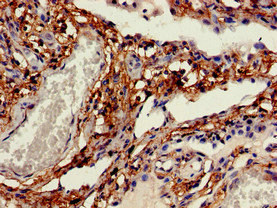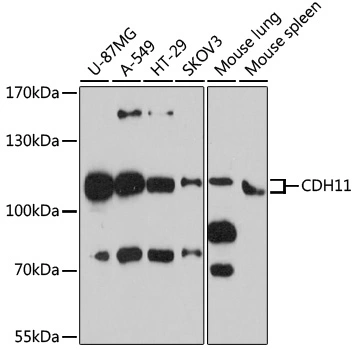
WB analysis of various sample lysates using GTX33082 CDH11 antibody. Dilution : 1:3000 Loading : 25μg per lane
CDH11 antibody
GTX33082
ApplicationsWestern Blot, ImmunoHistoChemistry, ImmunoHistoChemistry Paraffin
Product group Antibodies
ReactivityHuman, Mouse
TargetCDH11
Overview
- SupplierGeneTex
- Product NameCDH11 antibody
- Delivery Days Customer9
- Application Supplier NoteWB: 1:500 - 1:2000. IHC-P: 1:50 - 1:100. *Optimal dilutions/concentrations should be determined by the researcher.Not tested in other applications.
- ApplicationsWestern Blot, ImmunoHistoChemistry, ImmunoHistoChemistry Paraffin
- CertificationResearch Use Only
- ClonalityPolyclonal
- ConjugateUnconjugated
- Gene ID1009
- Target nameCDH11
- Target descriptioncadherin 11
- Target synonymsCAD11, CDHOB, ESWS, OB, OSF-4, TBHS2, cadherin-11, cadherin 11, type 2, OB-cadherin (osteoblast)
- HostRabbit
- IsotypeIgG
- Protein IDP55287
- Protein NameCadherin-11
- Scientific DescriptionThis gene encodes a type II classical cadherin from the cadherin superfamily, integral membrane proteins that mediate calcium-dependent cell-cell adhesion. Mature cadherin proteins are composed of a large N-terminal extracellular domain, a single membrane-spanning domain, and a small, highly conserved C-terminal cytoplasmic domain. Type II (atypical) cadherins are defined based on their lack of a HAV cell adhesion recognition sequence specific to type I cadherins. Expression of this particular cadherin in osteoblastic cell lines, and its upregulation during differentiation, suggests a specific function in bone development and maintenance. [provided by RefSeq, Jul 2008]
- ReactivityHuman, Mouse
- Storage Instruction-20°C or -80°C,2°C to 8°C
- UNSPSC12352203

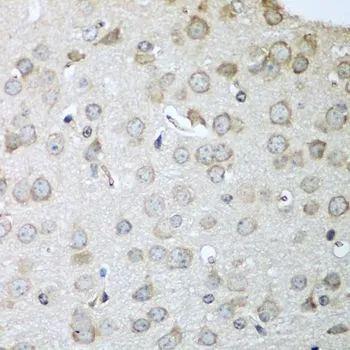

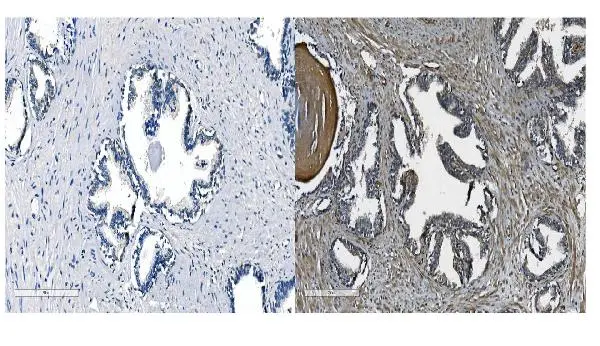
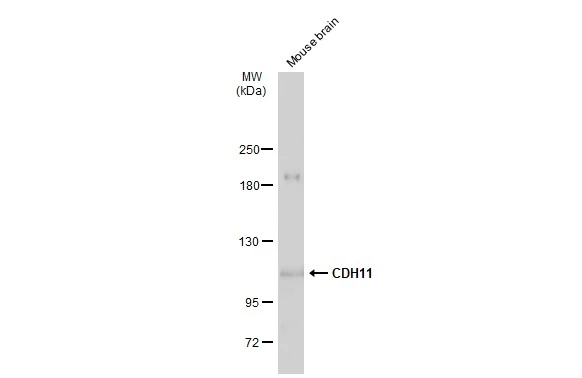
![Whole cell extract (30 μg) was separated by 7.5% SDS-PAGE, and the membrane was blotted with CDH11 antibody [HL1044] (GTX635978) diluted at 1:1000. The HRP-conjugated anti-rabbit IgG antibody (GTX213110-01) was used to detect the primary antibody.](https://www.genetex.com/upload/website/prouct_img/normal/GTX635978/GTX635978_44249_20221209_WB_C_22121123_890.webp)

